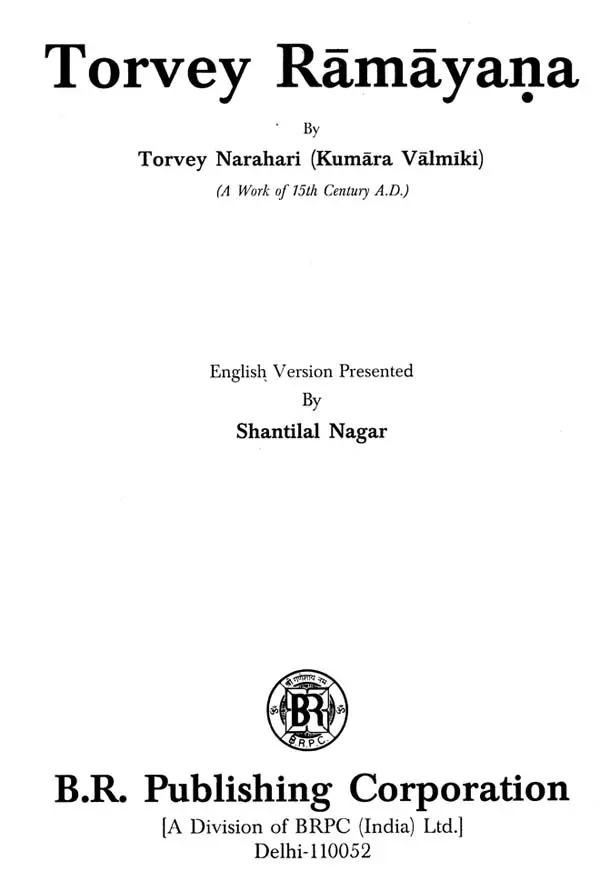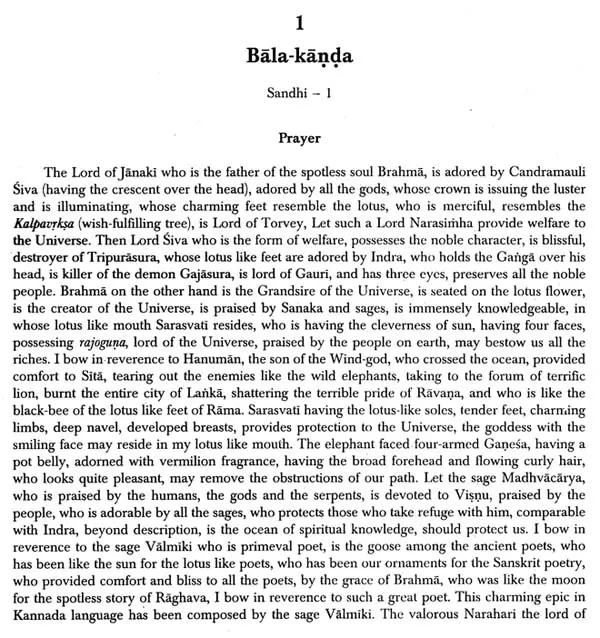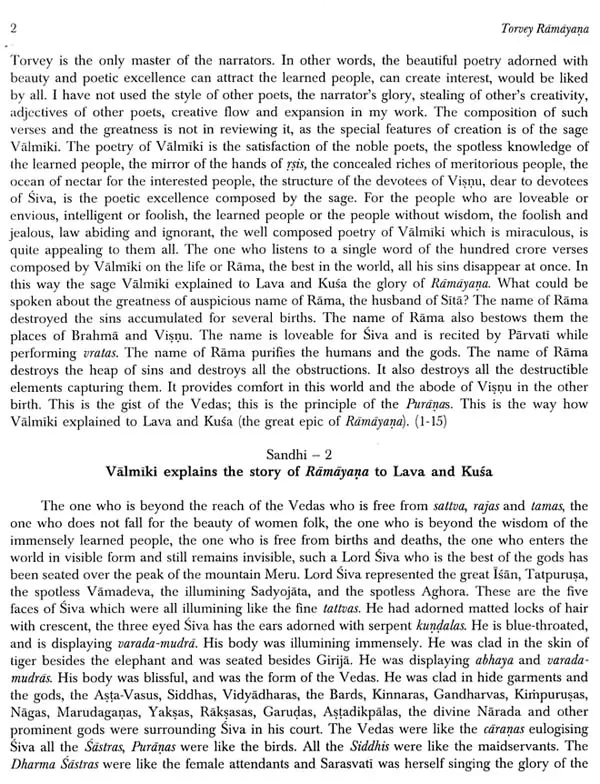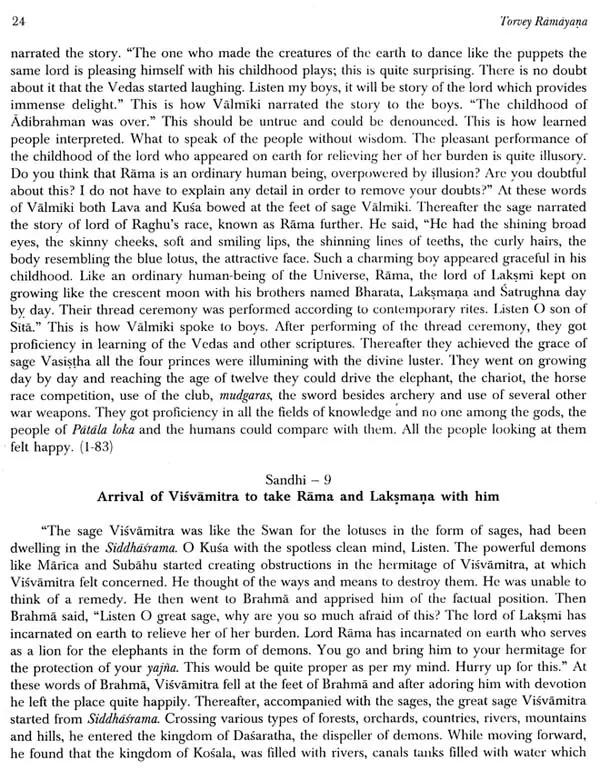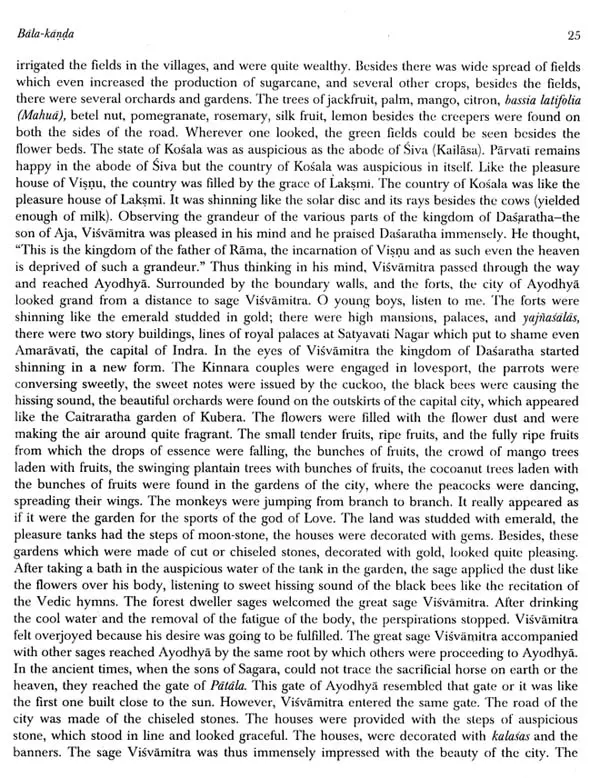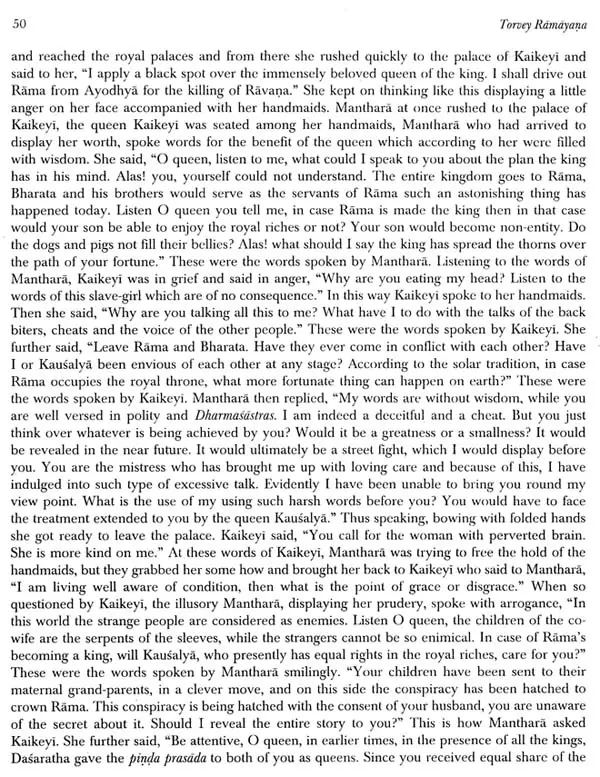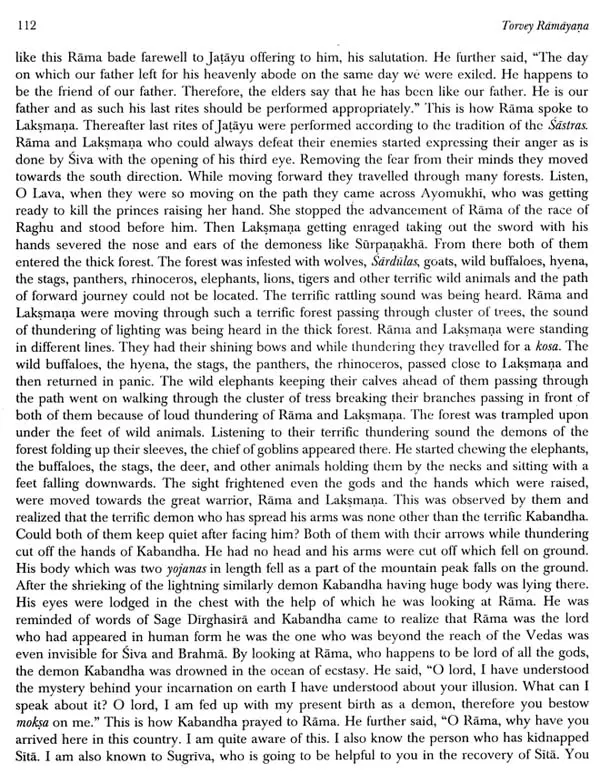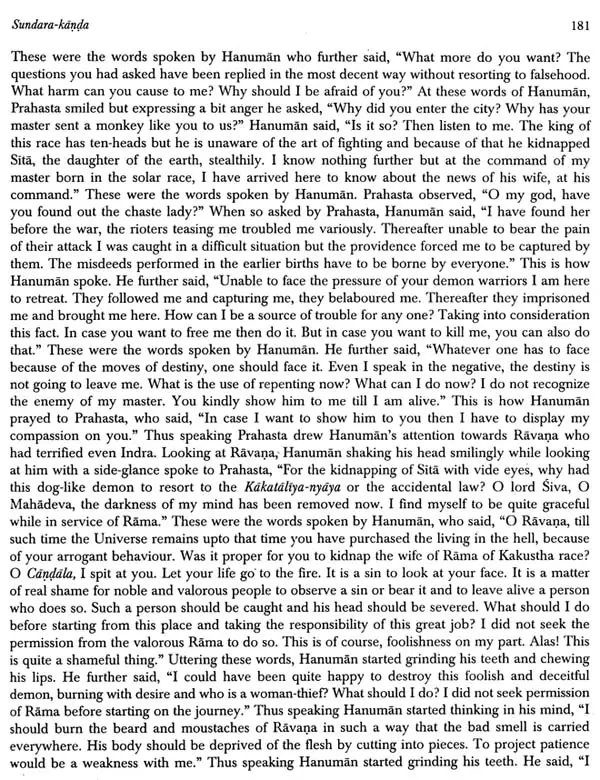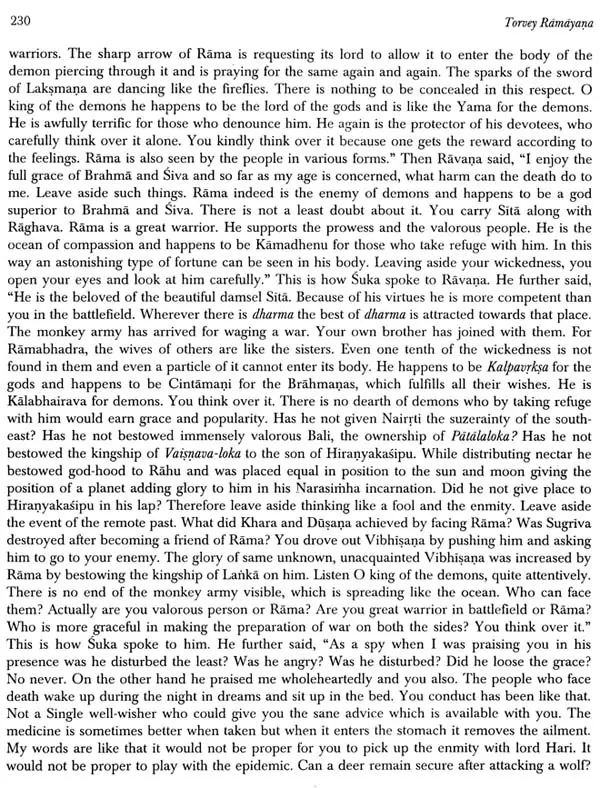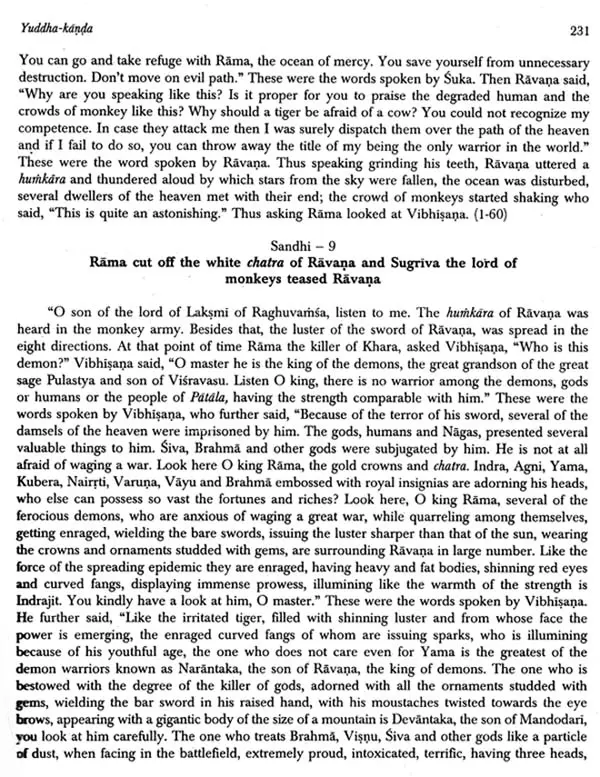
Torvey Rāmāyaṇa: Composed By Torvey Narahari (Kumara Valimiki) (A Work Of 15th Century A.D.)
Book Specification
| Item Code: | UAS127 |
| Author: | Shantilal Nagar |
| Publisher: | B.R. Publishing Corporation |
| Language: | English |
| Edition: | 2004 |
| ISBN: | 8176464554 |
| Pages: | 455 |
| Cover: | HARDCOVER |
| Other Details | 11.30 X 8.90 inch |
| Weight | 1.47 kg |
Book Description
The story of Rama has been dominating the Indian religious scene from the time immemorial. Though the scholars have tried to trace out the genesis of the story in fragments from the Vedic literature, but it goes to the credit of the Adikavi Valmiki to compose the theme in the form of a definite story of poetic excellence. With the composition of the work of Valmiki, its popularity went on increasing. Not only the same was played in audio-visual or performing art, but soon as urge was developed by the people speaking different languages to listen to the story in their own languages. As a result of this the story was composed in different languages of the various regions, besides Sanskrit. A number of Ramayana stories were composed in the medieval period and possible Kamba Ramayana (Tamil) was the earliest such work in the regional language. The Torvey Ramayana was composed in the fifteenth century A.D. in Kannada, by Torvey Narahari, the English version of which has been brought out and is likely to interest the readers.
Shantilal Nagar, a graduate of the Punjab University, served in the curatorial capacity in the Central Asian Antiquities Museum, New Delhi, the Archaeological Museum, Nalanda, and Archaeological Section of the Indian Museum, Calcutta for a number of years. He has to his credit the scientific documentation of over fifty thousand antiquities, in these museums, representing the rich cultural heritage of the country and comprising of sculptures, bronzes, terracottas, beads, seals and sealing, ancient Indian numismatics, wood work, miniatures and paintings, textiles and Pearce collection of gems, ranging from the earliest times to the late medieval period. He was awarded, in 1987, a fellowship, for his monograph on the Temples of Himachal Pradesh, by the Indian Council of Historical Research, New Delhi. He has authored more than fifty books.
The Ramayana was composed by the sage Valmiki as per the advice of Brahma and the brief of the same was provided to him by Narada. But before achieving that stage, Valmiki had to undergo several ordeals. The texts reveal that he was a robber known by the name of Ratnakara and used to live on robbery. Once when Brahma and Narada were passing by the forest in which the said robber resided, they had an encounter with Ratnakara-the robber, who wanted to kill both of them in order to, rob them of their belongings. At this Brahma, asked him, "Why do you indulge in such sinful ways?" Ratnakara replied, "He did so in order to feed his parents, son and wife. Then Brahma said, "For whom are you moving in sinful way, would they share the reward f your sins." Ratnakara was upset at this question and he said, "I shall have to enquire from my of parents and the family." Brahma then asked him to find out the factual position from his house. But Ratnakara was reluctant to move, because he apprehended that both of them would make good their escape in his absence.
He therefore, bound them with a tree and then left for his home, repeatedly looking back to ensure that both the ascetics were still there.
On reaching his home, he enquired from his parents, "My dear father and mother, would you share the reward of my sins, committed by me while feeding you." To this they replied, "Why should we contribute to your sins? It is your duty to feed us in the old age, as we also served our parents and also brought you up in your childhood." He was shocked with this reply. He also received a negative reply from his wife and son. He felt crest fallen and then he went to sages and fell at their feet, with a prayer for redemption. Brahma felt pity for Ratnakara and he asked him to go to the stream get a bath and should return to them. But as soon as Ratnakara touched the stream, its entire water was dried up, and he felt disgusted. Thereafter he went to Brahma and apprised him of the factual position. Then he prayed to Brahma to give him some mantra for recitation and purification. Brahma then thought, that the mind of Ratnakara had not been developed enough to receive dikya. But he asked him to look at a tree and say what tree was it? As soon as Ratnakara cast his glance over the tree, it was at once dried up with all the leaves falling on the ground. In utter astonishment, Ratnakara said, "This is a dead (mard) tree." Brahma then asked Ratnakara to recite the mara mantra. He further took out the sanctified water type of from his kamandalu and sprinkled upon him, which purified Ratnakara, who was detracted from the evil path and started reciting the mara mantra. In the meantime, both Brahma and Narada left the place. Ratnakara then started meditating seated in dhyana-mudra over the ground and performed tapas. Long time passed in this way and the shrubs and plants were grown over his body, which had been covered by the earth, by the white ants.
